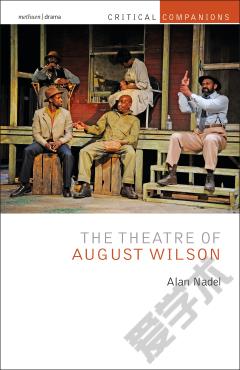The Theatre of August Wilson
The first comprehensive study of August Wilson's drama introduces the major themes and motifs that unite Wilson's ten-play cycle about African American life in each decade of the twentieth century. Framed by Wilson's life experiences and informed by his extensive interviews, this book provides fresh, coherent, detailed readings of each play, well-situated in the extant scholarship. It also provides an overview of the cycle as a whole, demonstrating how it comprises a compelling interrogation of American culture and historiography. Keenly aware of the musical paradigms informing Wilson's dramatic technique, Nadel shows how jazz and, particularly, the blues provide the structural mechanisms that allow Wilson to examine alternative notions of time, property, and law. Wilson's improvisational logics become crucial to expressing his notions of black identity and resituating the relationship of literal to figurative in the African American community. The final two chapters include contributions by scholars Harry J. Elam, Jr. and Donald E. Pease
{{comment.content}}








 京公网安备 11010802027623号
京公网安备 11010802027623号